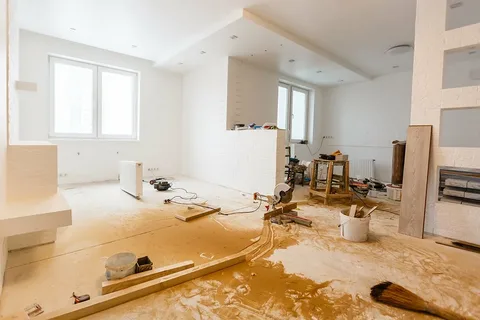How to Budget for a Home Remodel Tips and Strategies

Budgeting for Home Remodel: Tips & Strategies
Remodeling your home is an exciting opportunity to improve your living space and increase its value. However, it requires careful financial planning to ensure that you stay within your budget and achieve your desired results. Proper budgeting for a home remodel involves more than just estimating costs; it requires strategic planning, realistic expectations, and a clear understanding of potential expenses. In this guide, we’ll explore essential tips and strategies to help you budget effectively for your home remodel.
Assess Your Remodeling Goals
Before diving into budgeting, it’s crucial to identify and clarify your remodeling goals. Determine what changes you want to make, whether it’s updating a kitchen, adding a bathroom, or enhancing your living space. Each project has different requirements and costs, so defining your goals will help you estimate expenses more accurately. Consider factors such as the scope of the project, the materials you wish to use, and any structural changes needed. Having a clear vision will allow you to create a more precise budget and avoid unexpected costs.
Research and Gather Estimates
Once you have a clear understanding of your remodeling goals, the next step is to research and gather estimates. Start by researching the costs of materials, labor, and any additional services you might need. Obtain quotes from multiple suppliers and contractors to get a sense of the market rates. It’s also a good idea to consult with house remodeling contractors to get a professional perspective on your project. They can provide valuable insights into potential challenges and help you refine your budget. Be sure to compare these estimates and choose options that align with your financial plan.
Set a Realistic Budget
Creating a realistic budget is essential to avoid overspending and ensure that your home remodel stays on track. Start by listing all potential expenses, including materials, labor, permits, and any unexpected costs. It’s wise to allocate a contingency fund—typically 10-20% of your total budget—to cover unforeseen expenses that may arise during the remodeling process. By setting a realistic budget and accounting for potential surprises, you can manage your finances more effectively and reduce the risk of financial strain.
Prioritize Your Spending
When budgeting for a home remodel, it’s important to prioritize your spending. Identify which aspects of the remodel are most important to you and allocate your budget accordingly. For instance, if upgrading your kitchen is your top priority, you may choose to spend more on high-quality materials and appliances in that area, while cutting back on less critical aspects. Prioritizing your spending helps ensure that you get the most value out of your budget and achieve the results that matter most to you.
Consider Financing Options
Depending on the scope of your home remodel, you might need to explore financing options to help cover the costs. There are various financing methods available, including home equity loans, personal loans, and credit cards. Each option has its pros and cons, so it’s essential to evaluate them carefully based on your financial situation and the size of your project. Consulting with a financial advisor can help you determine the best financing solution for your needs and ensure that you manage your budget effectively throughout the remodel.
Monitor Your Expenses
Effective budgeting involves continuous monitoring of your expenses throughout the remodeling process. Keep track of all costs, including any additional expenses that may arise. Regularly review your budget and compare it to your actual spending to ensure that you stay within your financial limits. If you notice any discrepancies or unexpected costs, address them promptly to avoid overspending. By staying vigilant and proactive, you can manage your budget more effectively and keep your home remodel on track.
Work with a Professional
One of the most effective strategies for staying on budget during a home remodel is to work with a professional. House remodeling services can provide expert guidance, help you make informed decisions, and manage the project efficiently. They have the experience and knowledge to navigate potential challenges and ensure that your remodel is completed within your budget. Collaborating with a reputable contractor can also help you avoid costly mistakes and achieve the desired results.
Review and Adjust Your Budget
As your home remodel progresses, it’s essential to regularly review and adjust your budget as needed. Unexpected issues or changes in project scope may require you to modify your financial plan. Be flexible and open to making adjustments to ensure that your remodel stays on track. By keeping an eye on your budget and making necessary adjustments, you can manage your finances effectively and achieve a successful home remodel.
Summary
In summary, budgeting for a home remodel requires careful planning, research, and ongoing management. By assessing your goals, gathering estimates, setting a realistic budget, prioritizing spending, exploring financing options, and working with professionals, you can navigate the remodeling process successfully. Remember to monitor your expenses and adjust your budget as needed to ensure that your project remains within financial limits. With these tips and strategies, you’ll be well-equipped to achieve your home remodeling goals and create a space that meets your needs and enhances your home’s value.





